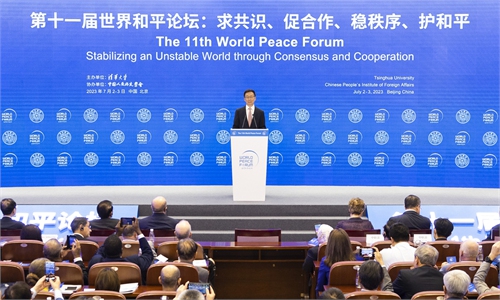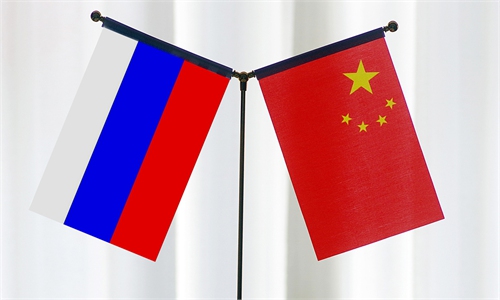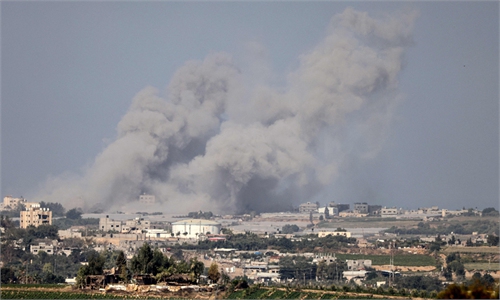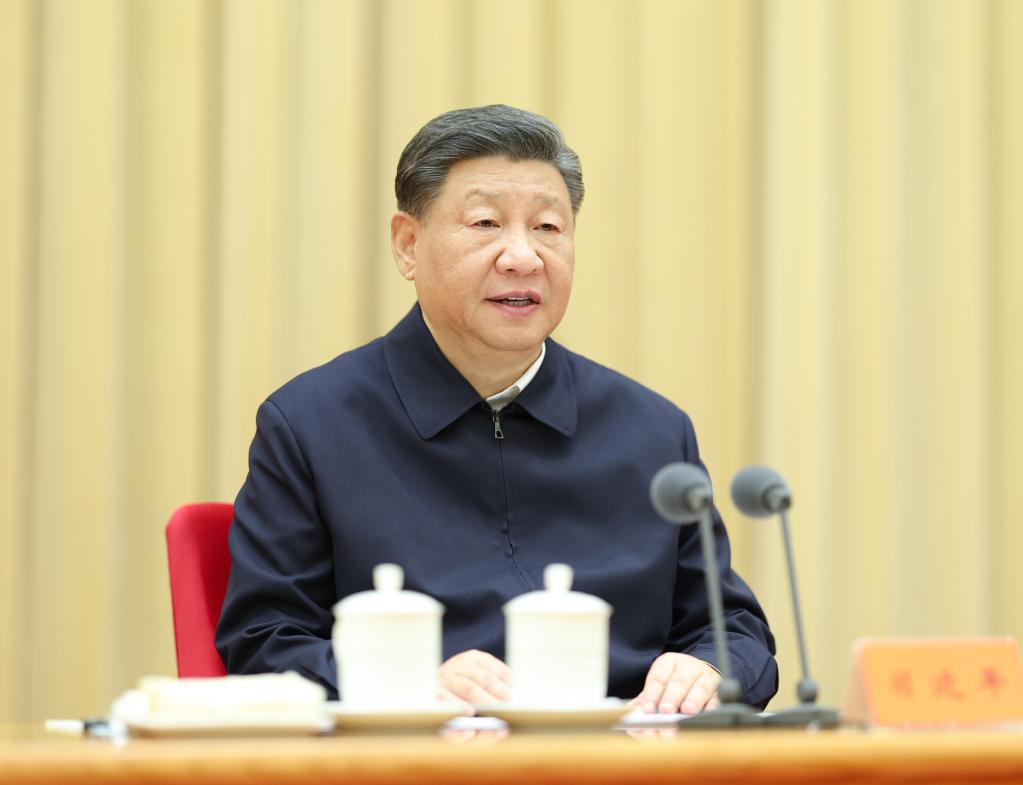
Xi Jinping, general secretary of the Communist Party of China Central Committee, Chinese president and chairman of the Central Military Commission, delivers an important speech at the Central Conference on Work Relating to Foreign Affairs in Beijing, capital of China. The conference was held in Beijing from Wednesday to Thursday. Photo: Xinhua
China concluded the latest Central Conference on Work Relating to Foreign Affairs on Thursday, with the participation of top leaders and senior officials covering the Party and central and local governments, as well as all departments and agencies related to foreign affairs.
This conference, held at the end of 2023, the first year that the guiding principles of the 20th National Congress of the Communist Party of China are implemented, will guide the direction of China's work relating to foreign affairs on the new journey, experts noted. The last conference of this kind was held in 2018.
The Central Conference on Work Relating to Foreign Affairs was held in Beijing on December 27-28. Xi Jinping, general secretary of the Central Committee of the Communist Party of China (CPC), Chinese president and chairman of the Central Military Commission, attended the conference and delivered an important address, according to the Ministry of Foreign Affairs.
In his important address, Xi presented a systematic review of the historic achievements and valuable experience of major-country diplomacy with Chinese characteristics in the new era, gave a profound exposition on the international environment and historical mission of China's external work on the new journey, and made comprehensive plans for China's external work for the present and coming periods.
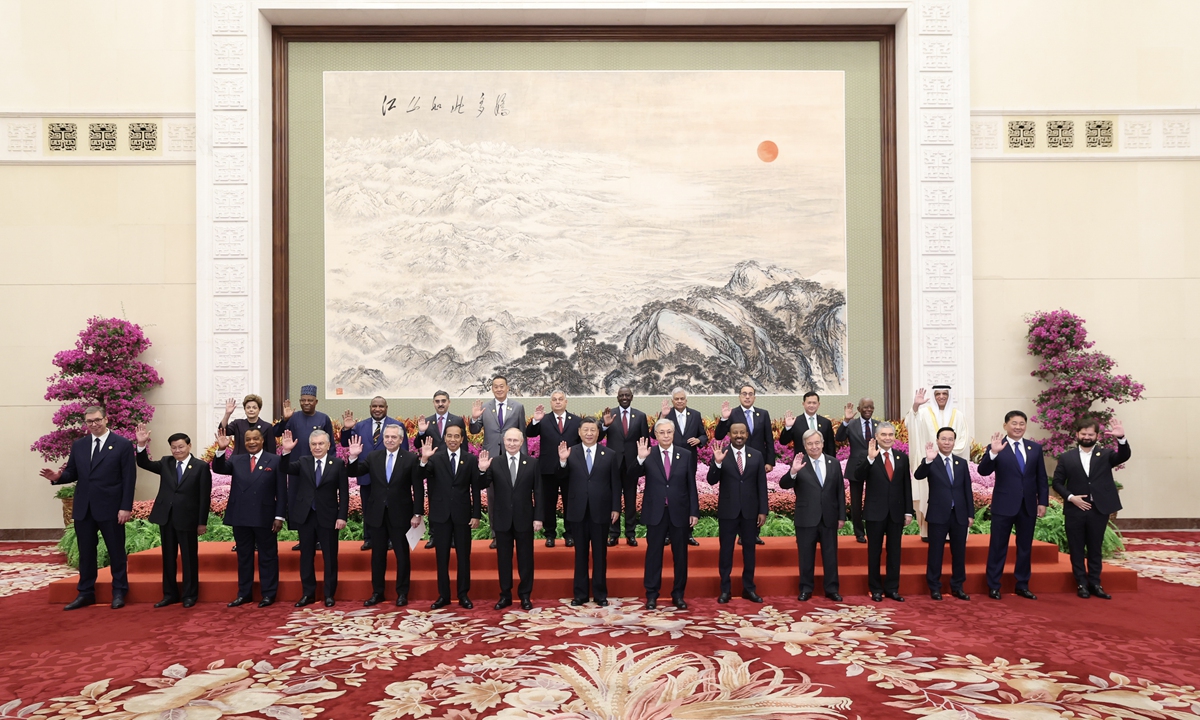
Chinese President Xi Jinping poses for a group photo with distinguished guests attending the third Belt and Road Forum for International Cooperation at the Great Hall of the People in Beijing, capital of China, October 18, 2023. Xi on Wednesday attended the opening ceremony of the third Belt and Road Forum for International Cooperation and delivered a keynote speech. Photo: Xinhua
Historic achievements
When highlighting the historic achievements since the 18th National Congress of the CPC, which was held in 2012, Xi said "We have advocated the building of a community with a shared future for mankind, pointing the right direction for human society leading to common development, lasting peace and security, and mutual learning between civilizations."
"We have followed the strategic guidance of head-of-state diplomacy, and played an increasingly important and constructive role in international affairs. We have taken a holistic approach to our relations with all parties, with a view to fostering major-country dynamics featuring peaceful coexistence, overall stability and balanced development," Xi noted.
Cui Hongjian, professor of the Academy of Regional and Global Governance at Beijing Foreign Studies University, told the Global Times on Thursday that "when dealing with other major powers, China now has its own position, stance and firmness, rather than blindly following other major powers. Whether it's in ties with the US or the EU, we have all eased the previous tensions."
During this process, China has not been intimidated by bullying and pressure from others, and "we are pushing forward the construction of ties with other major powers," Cui noted.
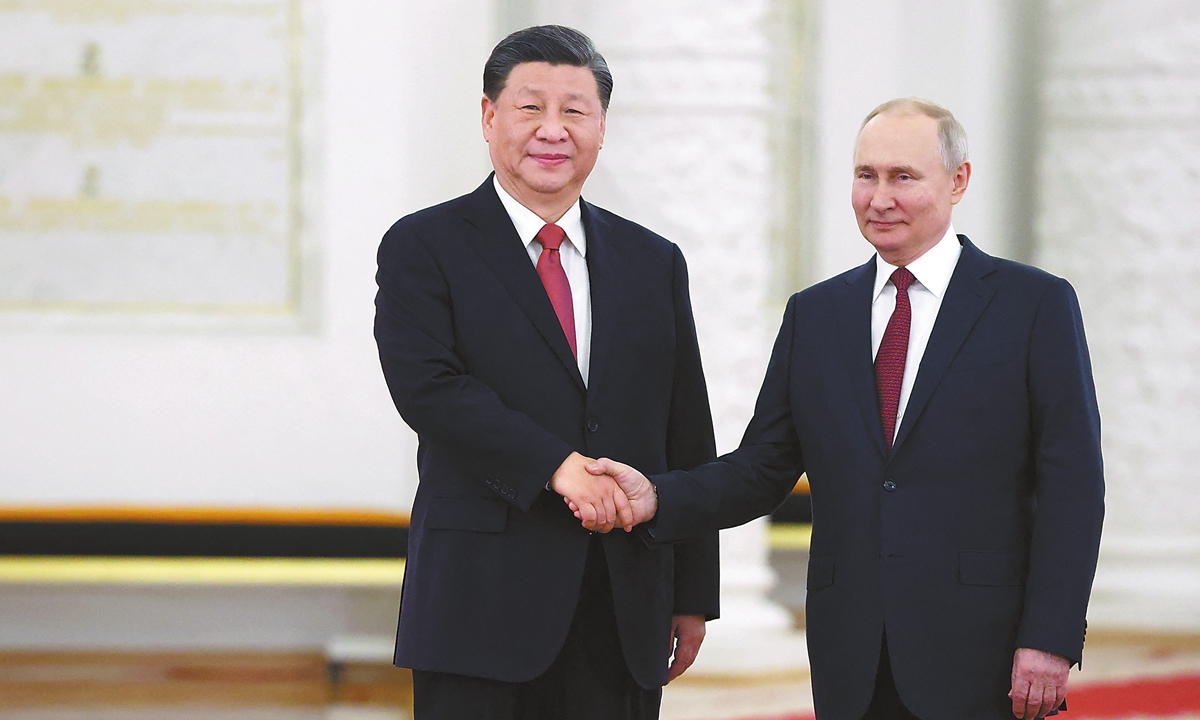
Chinese President Xi Jinping meets Russian President Vladimir Putin at the Kremlin in Moscow on March 21, 2023. The two leaders jointly met the press after their talks. Photo: AFP
Xi said in his speech that "we have expanded a comprehensive strategic layout, and formed a wide-ranging, high-quality global network of partnerships," and "we have advanced high-quality Belt and Road cooperation, and established the world's most broad-based and largest platform for international cooperation."
"We have worked to both pursue development and safeguard security, and effectively upheld China's sovereignty, security and development interests with a firm will and an indomitable fighting spirit," and "we have taken an active part in global governance, and shown the way in reforming the international system and order," the Chinese president remarked.
Cui said, "Another notable characteristic of China's diplomacy is that China has always insisted on its own stance, and refuses to take sides in any conflicts that have occurred in recent years. We have found a path that not only fits China's own interests but also serves the shared interests of the international community."
In addition, China also contributes to the mediation of conflicts and tensions, evidenced by the China-brokered agreement between Saudi Arabia and Iran on the restoration of diplomatic relations, one of the key contributions that China has made to a world in turbulence, Cui said.
Major challenges
In the past five years, the achievements in the field of foreign affairs work that China has made have helped it to overcome a series of challenges, including the US-launched trade war in 2018, the COVID-19 pandemic, and the disruption to supply and industrial chains after the outbreak of Ukraine crisis, said experts.
It was underlined at the conference that in the decade of the new era, we have seen high winds and choppy waters and overcome various difficulties and challenges in China's external work. We have opened up new prospects in major-country diplomacy with Chinese characteristics, and gained much more strategic autonomy and initiative in our diplomacy. China has become a responsible major country with enhanced international influence, stronger capacity to steer new endeavors, and greater moral appeal, according to the Chinese Foreign Ministry.
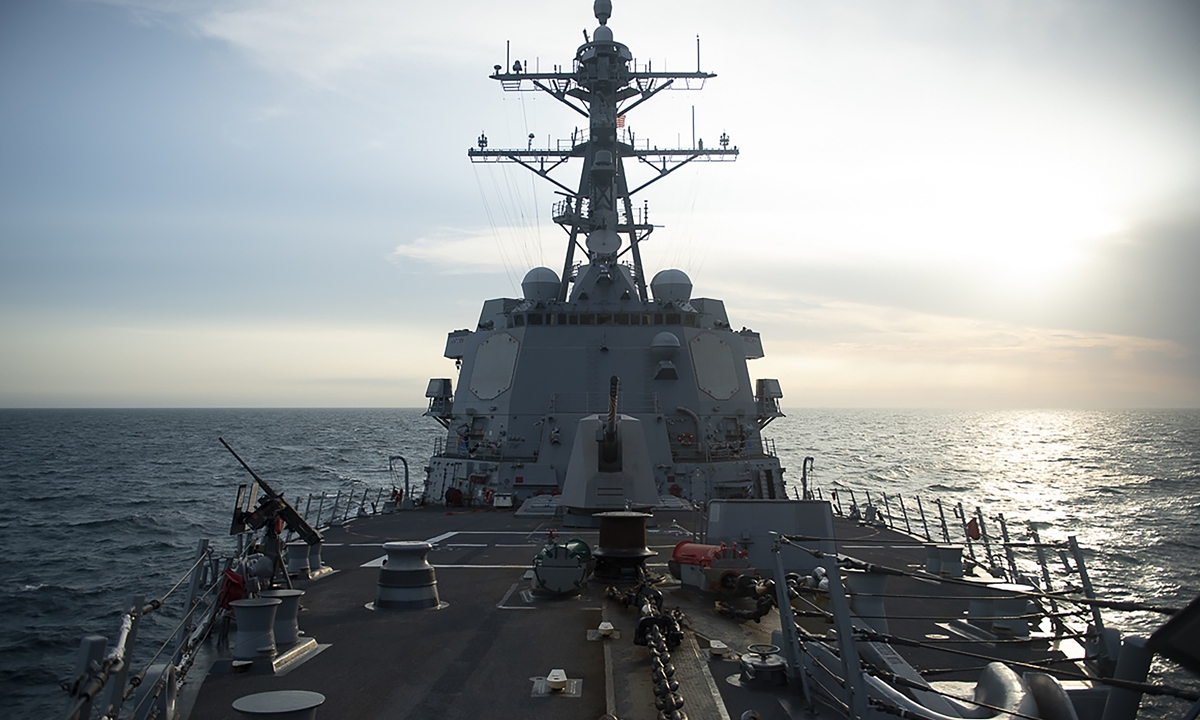
A US guided-missile destroyer sailed through the Taiwan Straits. File Photo:VCG
Li Haidong, a professor at the China Foreign Affairs University, told the Global Times on Thursday that "the most important outcome of the last foreign affairs conference in 2018 is that it established the guiding position of Xi Jinping thought on diplomacy. This allows China's diplomacy to play the role of a major engine for global recovery and become a key stabilizer of world peace in general during the profound changes in the world unseen in the past century."
The ongoing Ukraine crisis and the latest round of the Palestine-Israel conflict in Gaza all indicate that the world is at a "turning point," as "we, China and many of China's partners, want the world to turn to a direction of building a global community of shared future, but a few countries want to separate the world into blocs and alliances who play a zero-sum game with each other, and to impose nationalism, isolationism and protectionism when governing their own countries, rather than keep pushing and reforming the economic globalization," Li noted.
It was noted at the conference that great transformation is accelerating across the world. Changes of the world, of our times, and of historical significance are unfolding like never before, and the world has entered a new period of turbulence and transformation. Yet the overall direction of human development and progress will not change, the overall dynamics of world history moving forward amid twists and turns will not change, and the overall trend toward a shared future for the international community will not change. We must have full confidence in these trends of historical impact, the conference noted.
Future tasks
It was highlighted at the conference that looking ahead, China faces new strategic opportunities in its development. On the new journey, major-country diplomacy with Chinese characteristics will enter a new stage where much more can be accomplished.
"We must focus on the central task of the CPC and the country, seek progress while maintaining stability, break new ground while upholding fundamental principles, and firmly safeguard China's sovereignty, security and development interests. We will explore new frontiers in China's diplomatic theory and practice, foster new dynamics in the relations between China and the world, and raise China's international influence, appeal and power to shape events to a new level," the conference noted.
"We will create a more favorable international environment and provide more solid strategic support for building China into a great modern socialist country in all respects and advancing the great rejuvenation of the Chinese nation on all fronts through the Chinese path to modernization," the conference highlighted.
Chinese analysts said that in the future, China will still serve as a responsible power and a stabilizer for the international system, and push for reform and improvements in the current international order and economic globalization in a constructive way.
"We are now standing on a higher position, and our vision has also reached new heights. The international community has higher expectations of us when dealing with global challenges and hot spot issues," so this makes our work more important and honorable, but also more difficult and complex, as we need to learn to deal with more forces, to take more responsibilities, and handle more cases that we have never had before, Cui said.
"We need to have an overall review of our work relating to foreign affairs, in terms of mindsets, frameworks and paths, so that we can come up with new ideas and approaches that can fit new demands and new changes," Cui noted.

